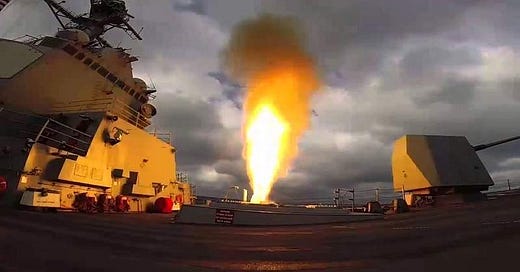Pentagon Warns Yemen Conflict Draining US Military Resources Needed to Deter China
The report revealed growing concerns among American military leaders that the US-led military campaign in Yemen is significantly affecting the Pentagon’s readiness and preparations to confront China
United States - A report published by The New York Times revealed growing concerns among American military leaders that the United States-led military campaign in Yemen is significantly affecting the Pentagon’s readiness and preparations to confront China in the Asia-Pacific region.
According to congressional officials, there are increasing fears that the Pentagon may be forced to divert long-range precision weapons from stockpiles intended for the Pacific theater to the Middle East, due to the high rate of munitions consumption in the ongoing military operations in Yemen—operations that were initiated under President Donald Trump.
Yemen Frontlines Expose Limits of US Military Reach
The newspaper confirmed that US military commitments in the Middle East have escalated since the outbreak of the war between Israel and Gaza in October 2023, followed by intensified attacks by the Houthis on ships in the Red Sea in support of Palestinians.
As a result, US naval and air forces, along with the service members operating them, have come under sustained operational pressure. At the same time, maintenance of essential military equipment has become a real challenge.
Congress to Question Indo-Pacific Commander on US Readiness
The report pointed out that Admiral Samuel Paparo, commander of the US Indo-Pacific Command, is set to testify before Congress this week regarding the current state of military readiness and preparedness.
Several former Trump aides—including former Defense Secretary Pete Hegseth and Elbridge Colby, the former Deputy Secretary of Defense for Policy—have argued that priority should be given to strengthening America’s military presence in the Pacific to deter China, especially in light of Beijing’s rapid military expansion and growing nuclear arsenal.
US Resources Stretched Thin After Years of Global Engagement
These officials contend that US military resources have already been strained due to continuous support for Ukraine in its war with Russia, in addition to decades of military campaigns in the Middle East and Afghanistan.
They warned that if Israel were to strike Iranian nuclear enrichment facilities in the coming months, Washington could find itself compelled to divert even more military resources to the Middle East—further complicating the situation.
Costly and Limited Success in Yemen Campaign
Despite the intensity of the US-led air campaign in Yemen, Pentagon officials reportedly told their coalition counterparts and congressional aides in closed-door meetings that the operation has achieved only limited success in degrading the Houthis' arsenal of missiles, drones, and launchers.
A senior US Defense Department official estimated that nearly $200 million was spent during the first three weeks of the campaign alone, noting that the real cost exceeds $1 billion when including operational and personnel expenses.
Alarm Over High Rate of Munitions Consumption
According to the newspaper, defense officials have warned that the US military is consuming munitions at an alarming rate. A senior official told congressional aides that both the Navy and the Indo-Pacific Command are deeply concerned by the accelerated pace of consumption.
Naval munitions stockpiles were already below target levels even before President Biden ordered strikes on the Houthis more than a year and a half ago.
A congressional official quoted a senior Pentagon leader warning that the United States could face serious operational challenges if a conflict were to erupt in Asia.
Yemen Campaign Using Key Weapons Reserved for Asia-Pacific Deterrence
The report explained that the campaign against the Houthis relies heavily on long-range weapons such as Tomahawk cruise missiles, AGM-154 glide bombs, and stealthy AGM-158 missiles—the very weapons US war planners consider critical in repelling a potential Chinese offensive in the South or East China Sea.
Officials noted that these weapons are stored at US bases in Guam, Okinawa, and other locations along the western Pacific. Although the Pentagon has not yet had to draw from these stockpiles for use against the Houthis, it may soon have to do so. (PW)
Source: Al-Masirah




